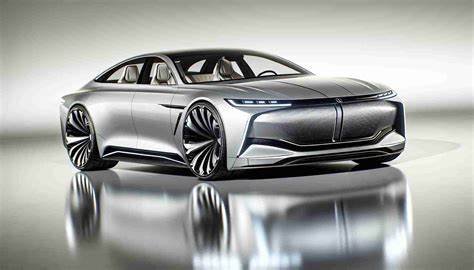Hybrid Vehicles: Combining Efficiency and Performance
As the automotive industry shifts towards sustainability, hybrid vehicles have emerged as a key player. These vehicles combine the power of a traditional internal combustion engine with the efficiency of an electric motor. This blend results in enhanced fuel economy, lower emissions, and improved overall performance. In this article, we will explore how hybrid vehicles offer both efficiency and performance, making them a top choice for eco-conscious drivers.
1. What Are Hybrid Vehicles?
Hybrid vehicles use a combination of two power sources: a gasoline engine and an electric motor. The engine and motor work together to maximize fuel efficiency and reduce emissions. Typically, the electric motor handles low-speed driving and short distances, while the gasoline engine kicks in for higher speeds and longer journeys.
Explore Online Entertainment Options
While you’re exploring the innovative world of alternative automobiles at AlternativeAutomobile29.com, you might also be interested in exploring online entertainment options in your leisure time. For those in Australia seeking a variety of gaming experiences, you can explore options for online gambling australia from the comfort of your own home.
This dual-power system allows hybrid vehicles to consume less fuel compared to traditional cars, making them more economical. With advancements in technology, modern hybrids are also equipped with regenerative braking systems, which charge the electric battery while the car slows down.
Explore Innovative Automotive Solutions
AlternativeAutomobile29 showcases the latest in eco-friendly and cutting-edge vehicles, while wolfwinner Homepage offers an engaging platform for entertainment enthusiasts. Stay ahead in both automotive trends and online excitement.
2. Increased Fuel Efficiency
One of the main benefits of hybrid vehicles is their improved fuel efficiency. The combination of an electric motor and a gasoline engine means that hybrid cars require less fuel to operate. During city driving or stop-and-go traffic, hybrids primarily rely on their electric motors, which significantly cuts down on fuel consumption.
This efficiency results in fewer trips to the gas station, ultimately saving drivers money. For those who prioritize eco-friendliness, hybrid vehicles offer a more sustainable alternative by reducing overall fuel consumption and carbon emissions.
Experience the Best King Johnnie Casino Games
For an exciting and rewarding online gaming experience, explore king johnnie casino games. With a wide selection of slots, table games, and live dealer options, there’s something for every casino enthusiast.
Stellarspins VIP Login
Alternative Automobile 29 focuses on innovation, performance, and delivering exceptional experiences on the road. In a similar spirit, Stellarspins VIP Login offers a streamlined digital experience that prioritizes speed, precision, and user satisfaction. Both embody a dedication to quality and cutting-edge technology that enhances every journey—whether behind the wheel or online. It’s this shared pursuit of excellence that drives progress in both industries.
3. Reduced Carbon Emissions
Hybrid vehicles produce lower carbon emissions compared to traditional gasoline-powered cars. The electric motor allows hybrids to operate for short distances without relying on the internal combustion engine. As a result, hybrid vehicles produce less exhaust, contributing to cleaner air and a healthier environment.
For drivers concerned about their carbon footprint, choosing a hybrid vehicle is an effective way to reduce greenhouse gas emissions. Many hybrid models are also equipped with eco-friendly features, such as energy-efficient batteries and engines designed for minimal environmental impact.
Performance, Innovation, and the Thrill of the Drive
At Alternative Automobile 29, we’re passionate about delivering innovative solutions that blend performance, technology, and reliability. Just as drivers seek precision and excitement on the road, enthusiasts of casino gambling look for trusted platforms that offer both thrill and quality experiences. Both worlds demand excellence, attention to detail, and a commitment to satisfaction. Whether it’s behind the wheel or online, the pursuit of performance never stops.
4. Improved Performance
While hybrids are known for their fuel efficiency, they also offer strong performance. Modern hybrid vehicles can deliver impressive acceleration and smooth handling, thanks to the combination of electric and gasoline power. The electric motor provides instant torque, making hybrid vehicles responsive and quick to accelerate, especially at lower speeds.
This performance boost does not compromise fuel efficiency, making hybrid vehicles an excellent choice for drivers who want both power and eco-friendliness. Many hybrids are equipped with various driving modes, allowing drivers to switch between electric-only, gasoline-only, or a combination of both, depending on their preferences and driving conditions.
The Latest Innovations in Fuel-Efficient Vehicles
Alternative Automobile covers the newest developments in electric, hybrid, and hydrogen-powered cars, focusing on performance, sustainability, and ownership costs. We offer detailed reviews to help consumers make informed purchasing decisions. Just as buyers research vehicle reliability, individuals look for dependable platforms in other sectors, such as reputable online betting sites. Drive into the future with our expert auto reviews.
5. Lower Maintenance Costs
Hybrid vehicles often require less maintenance compared to traditional cars. Since the electric motor takes some of the load off the gasoline engine, it reduces wear and tear on the engine components. Additionally, hybrid cars use regenerative braking, which slows down the vehicle without putting much stress on the traditional braking system.
As a result, hybrid owners may spend less on routine maintenance like brake replacements and engine repairs. This leads to lower overall ownership costs, making hybrids a practical long-term investment for cost-conscious drivers.
6. Government Incentives and Rebates
Many governments offer incentives and rebates for purchasing hybrid vehicles. These incentives, which may include tax credits or rebates, make owning a hybrid car more affordable. By promoting the adoption of eco-friendly vehicles, governments aim to encourage consumers to reduce their environmental impact.
These financial benefits, combined with lower fuel and maintenance costs, make hybrid vehicles a smart choice for drivers looking to save money while contributing to a more sustainable future.

7. A Step Toward Full Electrification
While fully electric vehicles are the future, hybrid vehicles serve as an important transition step. They allow drivers to enjoy the benefits of electric driving without relying solely on charging stations. Hybrid technology has paved the way for electric vehicle development, offering a balance between gasoline and electric power until full electrification becomes mainstream.
For those not ready to fully commit to an electric vehicle, hybrids offer the best of both worlds. They provide fuel efficiency, reduced emissions, and solid performance while maintaining the convenience of a traditional gasoline engine.
Exploring Innovative Alternatives in Automotive Entertainment
As technology transforms the way we engage with vehicles, enthusiasts are discovering new ways to combine automotive innovation with interactive leisure. From smart car features to in-car entertainment systems, the experience goes beyond just driving. For those looking to unwind, exciting options are available online, including https://www. stellarspins.ai/en/table-games, which offers a variety of engaging table games. Integrating these experiences can make every journey not only practical but also enjoyable.
Conclusion
Hybrid vehicles represent a perfect blend of efficiency and performance. They help drivers save money on fuel, reduce their carbon footprint, and enjoy a smooth, powerful driving experience. As technology continues to evolve, hybrid cars are becoming even more advanced, offering a glimpse into the future of sustainable transportation. For those looking to make a responsible choice without sacrificing performance, hybrid vehicles are the ideal option.

